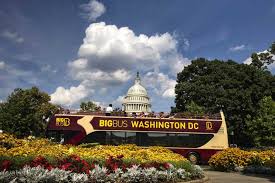How much is a plumber DC? How much do plumbers charge per hour? Depending on the service you need (unclogging a drain, fixing a pipe, installing new pipes, etc.), plumbers charge anywhere from $45-$165 per hour.
How do I become a plumber in DC? You need a Certificate of Completion, a Formal Designation Certificate, or transcripts to apply by waiver. If you have four years of experience but have not completed a training program, you can still become a journeyman by completing the journeyman plumber exam at the Department of Consumer and Regulatory Affairs.
How do I get a DC journeyman license? To earn a journeyman electrician license through the District of Columbia Board of Industrial Trades, you need four years of experience—a minimum of 4,000 hours—as an apprentice under a licensed contractor, or four years pursuing a college degree in electrical engineering and one year of on-the-job work experience
How do I get my HVAC license in DC? You will need to submit a completed application with a Certificate of Completion from your registered apprenticeship or Employment Verification Letter signed by a licensed master and the $65 application fee. Upon approval, you will receive a notice of eligibility to take the examination.
How much is a plumber DC? – Additional Questions
What is access DC?
Access DC is a service that allows you to easily sign-in to all DCRA applications through a single login, making using our online systems easier and more secure. Once you sign in, your Access DC homepage displays all your DCRA applications in one location.
Does Colorado require HVAC license?
The state of Colorado does not license HVAC professionals as they do electricians and plumbers. However, most cities and counties require HVAC workers — either technicians or air conditioning contractors— to be licensed at the local level.
What states are reciprocal with Virginia electrical license?
The Virginia electrician licensing board has reciprocity agreements with Maryland, West Virginia, North Carolina, Maryland, and Alabama.
What state is easiest to get electrical license?
Starting with the easiest, there are no statewide low-voltage licensing requirements in Iowa, Kansas, Mississippi, New Hampshire, North Dakota, Ohio and Wisconsin. While Colorado, Indiana, Missouri and Pennsylvania have no statewide requirements, localities in these states do have them.
What states reciprocate with Maryland plumbing license?
To qualify for reciprocation from WSSC or Baltimore County, you must hold BOTH the plumbing and gas portion of the license. The State Plumbing Board reciprocates with the State of Delaware: For the Master Plumber/Gasfitter license ONLY, you can apply online or call the State Board of Plumbing for an application.
Can you do electrical work without a license?
For minor electrical work, a homeowner doesn’t need an electrical license to do basic electrical work at their primary residence. Homeowners should not work on rental property they own. A homeowner can do the following minor electrical repairs to their primary residence including: replacing an existing light fixture.
Does an electrician need a license in Virginia?
Virginia requires all tradesmen to obtain a license before any bidding or work can take place. The state recognizes three different types of Electrical licenses. An Electrical Contractor license is used in combination with a valid Virginia Contractors license class A, B, or C.
What states are reciprocal with North Carolina electrical license?
Reciprocity
- ALABAMA. FLORIDA. GEORGIA.
- LOUISIANA. MISSISSIPPI. SOUTH CAROLINA.
- TENNESSEE. VIRGINIA. WEST VIRGINIA.
- OHIO. TEXAS.
Can a journeyman electrician pull permits in Virginia?
A journeyman electrician cannot pull permits.
What states accept NJ electrical license?
Reciprocity Agreements By State
| To waive license requirements in |
You need have a current license in |
| New Jersey |
No reciprocity agreements |
| New Mexico |
Alaska, Arkansas, Colorado, Idaho, Montana, Nebraska, Oklahoma, South Dakota, Texas, Utah, Wyoming |
| New York |
No reciprocity agreements |
| North Carolina |
No reciprocity agreements |
How much do electricians make?
Electricians earn an average of $27.36 per hour an annual salary of $56,000), based on the median figures provided by the United States Bureau of Labor Statistics (BLS). Between 2019 and 2029, the employment of electricians is expected to grow faster than most other professions.
How much does a licensed electrician make in New Jersey?
The average salary for a electrician in New Jersey is $64,000 per year. Electrician salaries in New Jersey can vary between $24,500 to $144,000 and depend on various factors, including skills, experience, employer, bonuses, tips, and more.
Can a California electrician work in Texas?
You have to present proof that you have passed a state exam from a reciprocal state. Texas requires that you have a minimum of 8,000 hours of on-the-job experience and that you have held the reciprocal license for one year or more.
Can a felon be an electrician in Texas?
Felons with certain convictions are generally not eligible to work as an electrician. These include those with an offense: Involving fraud or deceptive trade practices because they would have the opportunity to practice fraud related to the need for services.
How long does it take to become a Master Electrician in Texas?
Master Electrician: To become a master electrician, you must complete 12,000 hours of work under a master electrician. You must also have a journeyman license for at least two years before you apply. Once you meet these requirements, you can apply for your license and take the master test.
What states recognize California electrical license?
California has varying reciprocal agreements with Arizona, Nevada and Utah.
Can a Maryland contractor work in Virginia?
If I have a contractor license in Maryland or Washington, D.C., can I do projects Virginia? No. You must be licensed in each jurisdiction. There are no reciprocal agreements between D.C., Maryland and Virginia.
